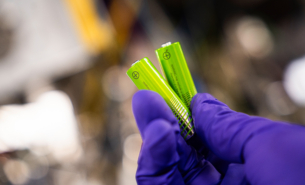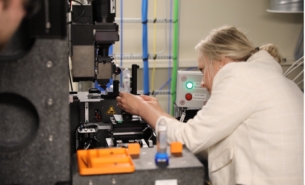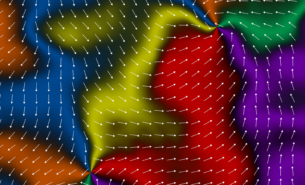According to the European Union's Circular Economy Action Plan, industry can determine up to 80 % of a product's subsequent environmental impact at the design phase. However, the linear manufacturing pattern offers few incentives to make products more sustainable. The research infrastructure project ReMade@ARI, which deals with innovative materials for key components in various areas such as electronics, packaging or textiles, aims to change this: The goal is to develop new materials with high recyclability and at the same time competitive functionalities. To this end, the institutions involved want to harness the potential of more than 50 analytical research infrastructures throughout Europe. MAX IV is a partner of this consortium.
The research infrastructure EU project ReMade@ARI aims to be the central hub for all sectors and research areas in which new materials for a circular economy will be developed. The project provides scientists who are working on the design of new recyclable materials with analytical tools that enable them to explore the properties and the structure of their material in smallest details down to atomic resolution. This requires the exploitation of the most diverse analytical methods, involving appropriate combinations of techniques using photons, electrons, neutrons, ions, positrons and the highest magnetic fields.
A particular focus will be on research fields in which up to now, the potential of research infrastructures has not yet been exploited. ReMade@ARI, which stands for REcyclable MAterials Development at Analytical Research Infrastructures, will offer the scientists an all-round service, closely collaborating with them to identify the relevant properties to be analyzed to develop the optimum material for a particular purpose. Based on that, the most suitable research infrastructures to measure these properties will be identified from the pool of Europe’s unique facilities.
The project is being funded by the EU with a budget of 13.8 million euros. ReMade@ARI will have a significant impact on the advancement of the circular economy. Overall, 40 partners of the ARIE network are involved in the project.
MAX IV coordinates the central user office for the consortium and provides an expert hub for cellulose based materials. MAX IV also offers access to two of its 16 beamlines to contribute to Circular Economy motivated scientific cases, making available techniques such as absorption/emission, diffraction, scattering as well as imaging techniques.
Source: ReMade@ARI
Reference: European Union Circular Economy Action Plan




